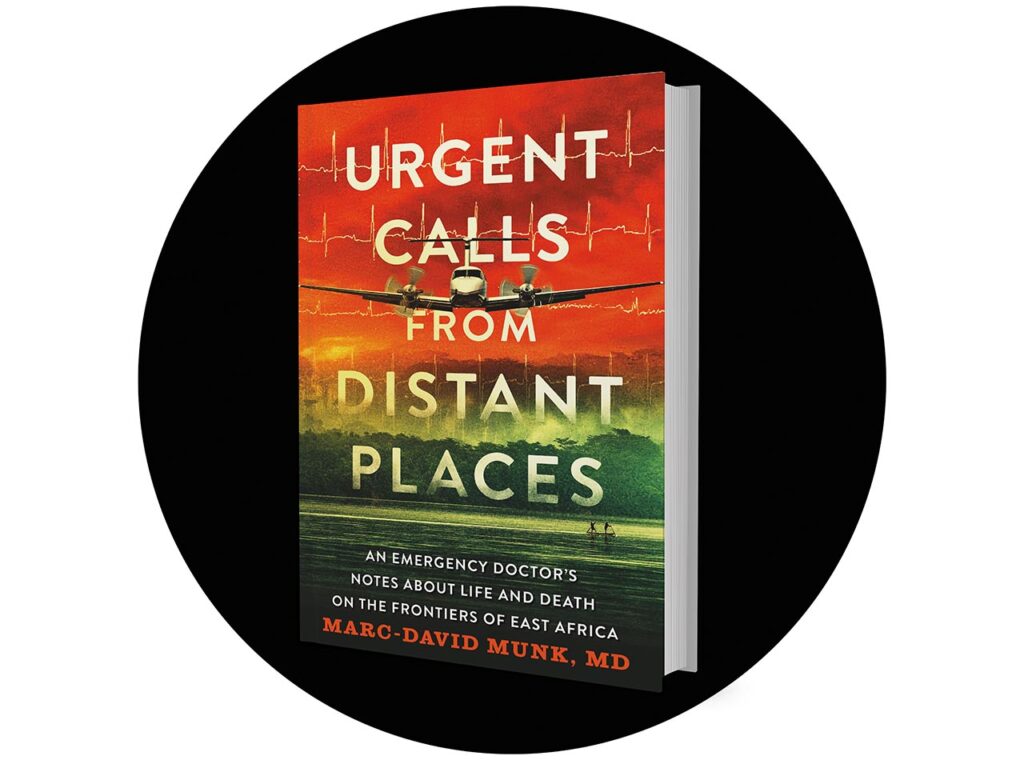
Sitting in an air ambulance on the tarmac of the Addis Ababa airport in Ethiopia, Dr. Marc-David Munk ’95 examined the patient lying on a stretcher before him. The young man was sick with a severe infection; his blood pressure had dropped, and his kidneys and liver were failing rapidly. He had few platelets left (Munk had his medical labs from the local hospital from which he was being transferred) and Munk noticed that the man was “bleeding from everywhere.” The bleeding presented a question mark. Munk looked at his Kenyan nurse and asked nervously, “Is it possible that this is actually a hemorrhagic virus, like Ebola?”
Munk had to make a call: the jet had been summoned to bring the young man to Nairobi. But transporting him to Kenya risked infecting millions of strangers — plus Munk and his team — with a dangerous virus. The awful alternative was to leave his patient behind, where he would likely die.
Luckily, Munk made the right call by flying the patient to the hospital — as it turns out, his illness was bacterial, and nowhere as contagious as a hemorrhagic virus.

Such were the types of complex cases Munk encountered during his tenure with AMREF Flying Doctors, a famed medical evacuation service operating out of Nairobi. He describes his diverse adventures in a new book, Urgent Calls From Distant Places: An Emergency Doctor’s Notes About Life and Death on the Frontiers of East Africa (Creemore Press, 2024).
Though he was a philosophy and religion major at Colgate, Munk became inspired to become a doctor by his work with the Southern Madison County Volunteer Ambulance Corps and the Hamilton Fire Department, an evolution he describes in the book. He went on to become an emergency physician, undertaking additional coursework in tropical medicine, epidemiology, and global health. While he had seen a lot during his clinical training in Philadelphia and Pittsburgh, even those experiences couldn’t prepare him for the complex cases he handled during his time with the Flying Doctors. “Every call was challenging and wrought,” says Munk, who volunteered with AMREF in 2008 and 2012. “There were remarkable saves, morally ambiguous cases, and many horrors.”
Munk found meaning in helping others in Africa. He also began to find himself; his time in U.S. emergency departments had caused Munk to become disillusioned with the dysfunctional American health care system. He returned home inspired to help improve U.S. health care.
For more than a decade, he’s worked toward this goal, first earning a management degree and then holding executive roles with innovative health care delivery companies in the U.S. and abroad. He still collaborates with AMREF. “The book was an opportunity for me to make sense of how my career came together,” Munk says.
The book’s publication signals closure of an earlier season of Munk’s career. It also signals a second professional pivot: Beginning this summer, Munk will train to become a hospice and palliative care specialist. “Treating complex patients with advanced illnesses involves creating order out of disorder,” he explains. The work draws upon skill sets he’s honed in all of the positions he’s held throughout this career.
“I’m older, it’s a different season. And, what a purposeful adventure it has all been,” he says.
